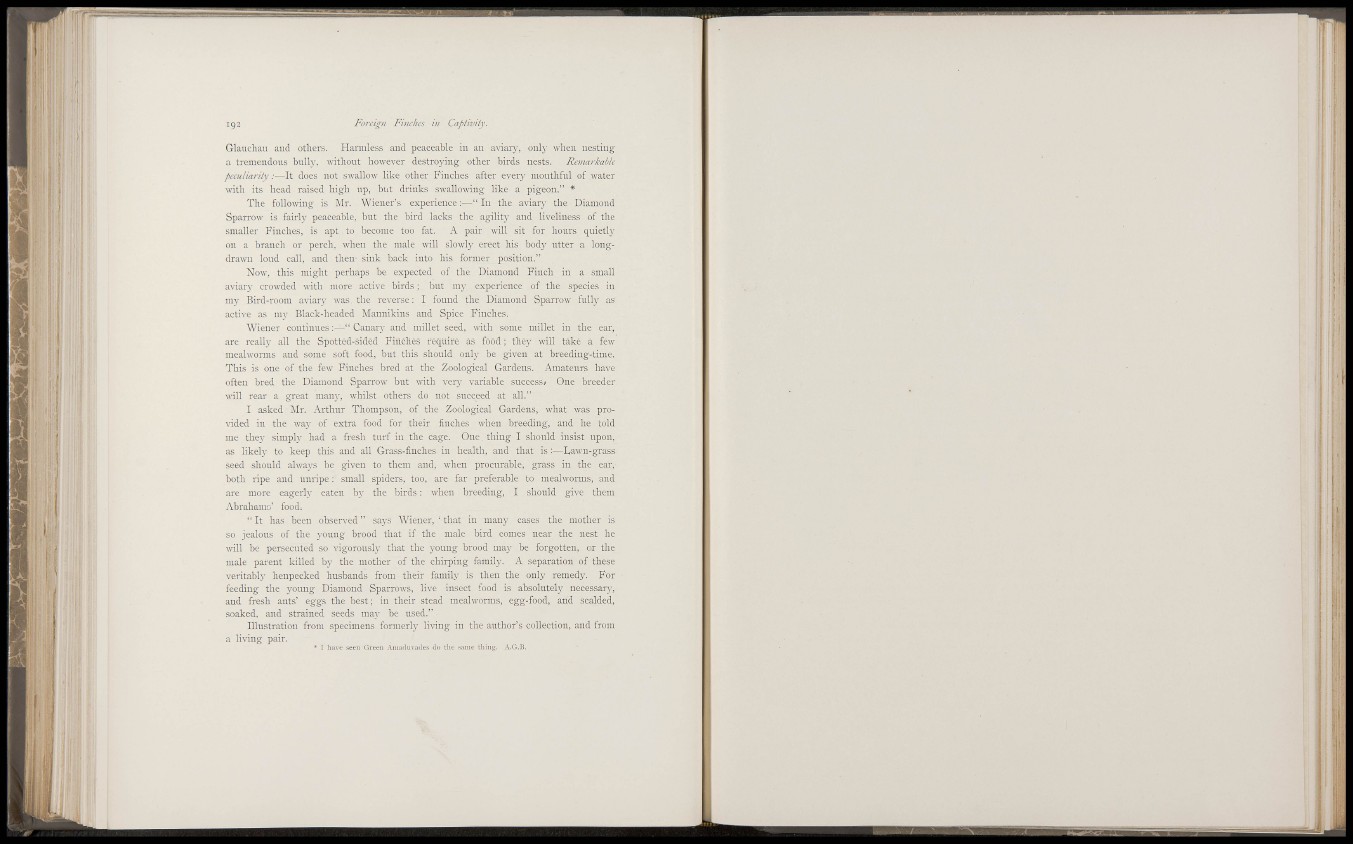
SI'v
; I1'l 'ti' • t
' I
m
i
r i - i
i:.:- i
1:! ^^
t •
,1
• ' 'i
li i i
li ' 1 '' '
^ f j
i|
ji
i) 'i?
192 Foreign Fiiidies in Captivity.
Glaucliaii and others. Harmless and peaceable in an aviar}-, onl)- when nesting
a treniendons bully, without however destroj-ing other birds nests. Riimirkahle
piculiarity :—It does not swallow like other Finches after everj- nioutliful of water
with its head raised high up, but drinks swallowing like a pigeon." *
The following- is Mr. Wiener's experience:—" In the aviar}- the Diamond
Sparrow is fairl)- peaceable, but the bird lacks the agility and liveliness of the
smaller Finches, is apt to become too fat. A pair will sit for hours quietly
ou a branch or perch, when the male will slowl}* erect his bodj- utter a longdrawn
loud call, and then- sink back into his former position."
Now, this might perhaps be expected of the Diamond Finch in a small
aviar\- crowded with more active birds ; but my experience of the species in
ni}' Bird-room aviar\- was the reverse; I found the Diamond Sparrow fullj- as
active as my Black-headed Maunikins and Spice Finches.
AViener continues;—" Canary and millet seed, with some millet in the ear,
are realh" all the Spotted-sided Finches require as food ; thej- will take a few
mealworms and some soft food, but this should onh" be given at breeding-time.
This is one of the few Finches bred at the Zoological Gardens. Amateurs have
often bred the Diamond Sparrow but with verj' variable success? One breeder
will rear a great man}-, whilst others do not succeed at all."
I asked >Ir. Arthur Thompson, of the Zoological Gardens, what was provided
in the wav of extra food for their finches when breeding, and he told
me the}- simply had a fresh turf in the cage. One thing I should insist upon,
as likel}- to keep this and all Grass-finches in health, and that is:—Dawn-grass
seed should always be given to them and, when procurable, grass in the ear,
both ripe and tmripe : small spiders, too, are far preferable to mealworms, and
are more eagerly eaten bj- the birds : when breeding, I should give them
Abrahams' food.
" It has been observed" says Wiener, ' that in many cases the mother is
so jealous of the 3-oung brood that if the male bird comes near the nest he
will be persecuted so vigorousl}- that the yonng brood may be forgotten, cr the
male parent killed b}' the mother of the chirping family. A separation of these
veritabl}' henpecked husbands from their family is then the only remedy. For
feeding the young Diamond Sparrows, live insect food is absolutely necessarj-,
and fresh ants' eggs the best; in their stead mealworms, egg-food, and scalded,
soaked, and strained seeds ma}- be used."
Illustration from specimens formerly living in the author's collection, and from
a living pair. * I have seen Green Ainiidiivade.s do the .same thing. A.G.B.